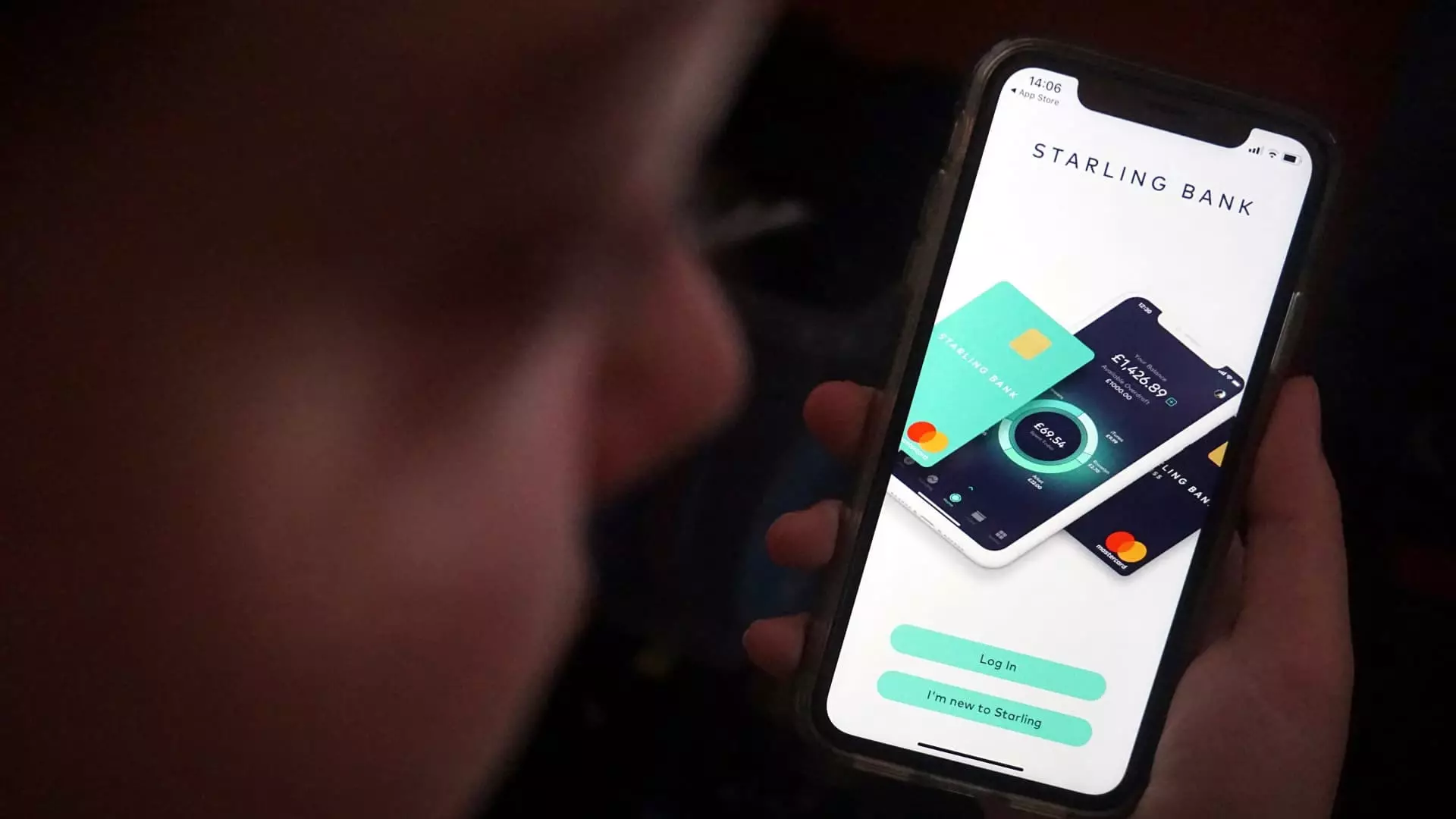Starling Bank’s recent financial report reveals a sobering narrative that echoes across the fintech industry—a sharp decline in profits tied directly to the chaotic environment wrought by the pandemic. The online lender, which assumed a role akin to a modern-day hero during the height of Covid-19, is now grappling with the fallout of its involvement in the Bounce Back Loan Scheme (BBLS). Originally designed to rescue small businesses flailing in the tempest of the pandemic, this initiative is increasingly depicted as a double-edged sword, one that not only provided necessary cash flow but also inadvertently paved the way for fraud and financial mismanagement.
The stark 26% drop in profits, which plummeted to £223.4 million ($301.9 million) by the end of March 2025, is emblematic of how quickly fortunes can reverse in the seemingly cut-and-dry world of finance. This downturn is further exacerbated by a hefty £29 million fine levied by the Financial Conduct Authority (FCA). It is a shocking reminder that the financial ecosystem is not merely a series of balanced ledgers; it is a complex web where trust is paramount. Starling’s experience raises compelling questions—can digital banks maintain their allure when plagued by scandals reminiscent of traditional banking woes?
Regulatory Oversight: A Necessary Evil?
While regulations are often viewed as cumbersome constraints, Starling’s ongoing challenges highlight their essential role in safeguarding both financial institutions and consumers. The FCA’s intervention indicates a depth of concern not just about the individual bank’s practices, but about the integrity of the wider financial landscape. Starling’s attempt to transparently rectify issues concerning its fraud checks should be applauded; however, it also serves as a cautionary tale of what can unfold in an environment eager for rapid growth, especially one as fervently competitive as fintech.
The situation compels us to evaluate the very fabric of oversight within the industry. Are regulatory bodies equipped to cope with the speed of innovation? For Starling, the BBLS debacle has shed light on the risks involved when companies operate on the edge of technological advancement without robust safeguards. The bank’s self-reported concerns about non-compliance raise significant alarms about accountability in an era where speed often trumps due diligence.
Transparency vs. Reputation
Starling’s efforts to come clean about the BBLS loans and their implications illuminate a broader conflict that many modern companies face: the balance between transparency and public perception. In a digital age where consumer trust can be shattered over social media, how does a bank maintain a strong reputation amidst scandals? Declan Ferguson, Starling’s CFO, put forth a narrative of cooperation and proactive engagement with the British Business Bank, yet the lingering doubts about the bank’s past practices risk overshadowing these efforts.
We must ask ourselves, is “truth-telling” enough when the damage to trust has already been done? Though Starling may have operated with full transparency, navigating the murky waters of public opinion is undeniably challenging. The fintech sector thrives on innovation and the promise of efficient banking solutions, but as we see with Starling, the inherent fragility of consumer trust makes even the most exhilarating advances susceptible to harsh public scrutiny.
Competing in a Crowded Landscape
As competition escalates within the fintech world, Starling finds itself caught in a whirlwind of rivals—behemoths like Monzo and Revolut are constantly reshaping the landscape with their innovative offerings and user-focused approaches. Once celebrated as a disruptor, Starling’s predicament illustrates the perilous nature of relying on momentum from earlier successes. How does one stand out in an industry where consumers are quick to switch banks based on perceptions of safety and reliability?
Starling’s latest figures underscore that even with a nominal revenue increase of 5%, the glory days of over 50% revenue growth seem to be fading into the background. This marks a significant pivot point—it calls for a re-evaluation of not just banking products but the underlying framework that governs trust, accountability, and user engagement in this digital-first world.
In this environment, issues of compliance, safety, and proactive governance will greatly influence the operational capabilities of firms like Starling. The challenge lies not just in recovering from losses but in innovating responsibly—a feat that can seem daunting in an industry characterized by rapid transformation. Starling’s journey—particularly in light of its recent trials—poses a poignant inquiry into the future of banking: can trust be restored, or is it a commodity that once lost, is irretrievable?


Leave a Reply